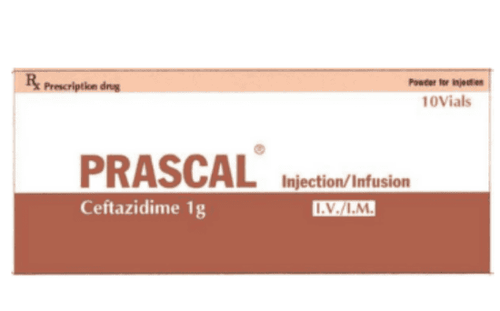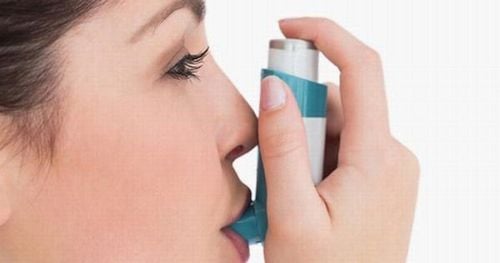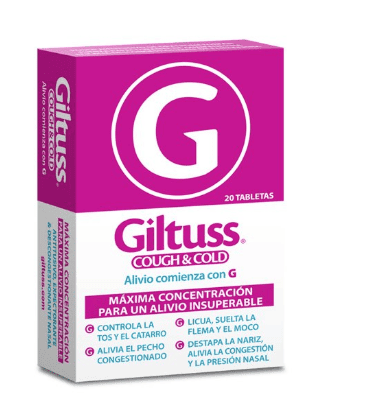This is an automatically translated article.
Infant wheezing or wheezing in young children is very common, with about 25% to 30% of infants having at least one episode of wheezing. By the age of three, this number rises to about 40% of children, and by the age of six nearly half of children will have at least one episode of wheezing.
1. Symptoms of wheezing
Wheezing is often accompanied by a productive or non-productive cough. Other symptoms depend on the cause of wheezing, such as wheezing and coughing, infants with stuffy nose wheezing, fever, runny nose, and poor feeding (due to heart failure or difficulty swallowing).
Wheezing occurs when a child's airway narrows and air flows rapidly through the narrowing. Young children are more prone to wheezing than adults due to physical differences. The bronchi of infants and children are both small, resulting in higher peripheral airway resistance. As a result, diseases affecting the small airways have a relatively larger impact on total airway resistance in children. Newborns also have less elastic recoil of lung tissue and more ollateral airways, leading to obstruction and greater susceptibility to atelectasis. The ribcage, trachea, and bronchi in infants and young children are also softer. All of these factors increase the likelihood that children are more susceptible to wheezing and respiratory distress than adults.

Triệu chứng thở khò khè và ho ở trẻ
Wheezing is usually heard when the child breathes out, however if the child has severe airway narrowing, the doctor may hear wheezing when the child breathes in. In addition, severely ill children may also breathe rapidly, use a lot of chest muscles to breathe, rise and fall, and change the color of their skin. Fever may occur if the child has a lung infection.
2. Causes of wheezing
The most common cause of sudden wheezing in infants and young children is often
Viral respiratory infections Bacterial lung infections Allergies Asthma Other less common causes such as chronic difficulty swallowing The condition can lead to aspiration of food or liquids into the lungs, gastroesophageal reflux disease, foreign bodies in the lungs, or heart failure. Whatever the initial cause of wheezing, symptoms are often made worse if a child has allergies or breathes in other irritants such as cigarette smoke.
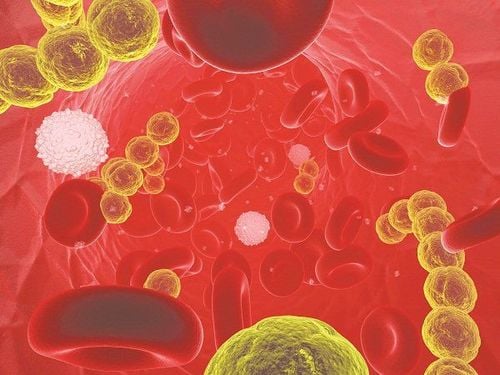
Virus, vi khuẩn xâm nhập đường hô hấp gây nhiễm trùng
3. Diagnose the cause of wheezing
When seeing a child with wheezing, most doctors recommend a chest X-ray to look for signs of a foreign body in the lungs, pneumonia, or heart failure. In addition, the doctor will measure the oxygen level in the blood by placing a sensor on the child's finger. Children with recurrent wheezing usually do not need to be tested, unless the child shows signs of severe shortness of breath. Children who have frequent recurrences or symptoms that are not relieved by bronchodilators or other asthma medications may require additional tests and diagnostic techniques, such as testing the child's ability to swallow, imaging computed tomography or bronchoscopy
4. Treatment
If infants and young children suddenly develop wheezing, the doctor prescribes an inhaled bronchodilator (such as albuterol) and if the wheezing is severe, the doctor will prescribe oral or intravenous corticosteroids.
If the child is not as likely to have asthma as a child with no signs of allergies or a family history of allergies or asthma and has relatively mild episodes of wheezing with infrequent frequency, the doctor will Prescribe inhaled bronchodilators only when necessary to control symptoms.
Most young children with frequent and/or severe wheezing have their doctor prescribe a bronchodilator when needed and a daily anti-inflammatory medication for asthma. Although daily use of a leukotriene modifier (Leukotriene modifier) or certain low-dose inhaled corticosteroids (such as beclomethasone) reduces the severity and frequency of wheezing episodes, these drugs do not Treat the cause of the wheezing and its progression. Therefore, in addition to treating wheezing, the doctor must still treat the cause of the child's wheezing.
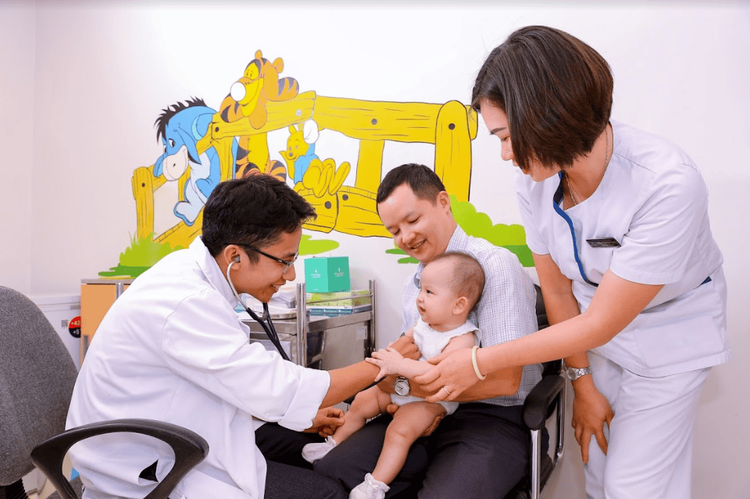
Phụ huynh nên đưa trẻ đến cơ sở y tế uy tín để được thăm khám và điều trị sớm
Lysine is very necessary for the development of children, Lysine promotes the production of digestive enzymes to stimulate children to eat better and digest easily and effectively, increase food metabolism, maximize absorption of nutrients. Nutrition from food.Strengthening lysine for babies helps the body create antibodies, develop resistance to help reduce cough, thin phlegm in children.
Parents can learn more:
Why do you need to supplement Lysine for your baby?
Please regularly visit Vinmec.com website and update useful information to take care of your baby and family.
References: Aafp.org; Msdmanuals.com




